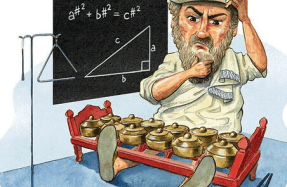
As you face the main entrance of Rome’s Teatro dell’Opera, on its right side runs a street, Via Torino, where on the theatre’s wall hangs a large, despondent laurel wreath. Many years of midday sun have bleached the colour from the foliage and the tricolore ribbon attached to it. The wreath sits below a stone plaque which says (in Italian):
In 1939 in this theatre, while rehearsing Puccini’s Turandot in the role of Calaf, the tenor NICOLA UGO STAME was arrested for anti-fascism. For the courage of his ideas, after being tortured in Via Tasso, he was slaughtered with Nazi ferocity on the 24 March 1944 at the Ardeatine Caves
There is so much to digest in this epitaph. But the first question is certainly this: who was this Nicola Stame, the rare tenor who not only played the hero but who was actually heroic?
Born in 1908, Nicola Stame – Ugo to his family and friends – grew up in Puglia, in the town of Foggia, birthplace of the composer Umberto




